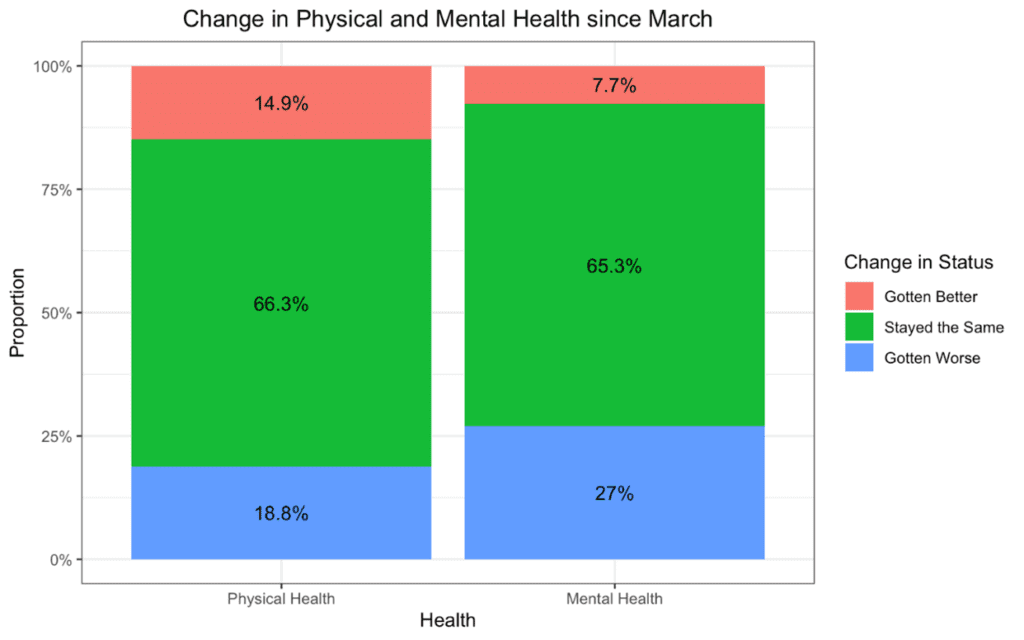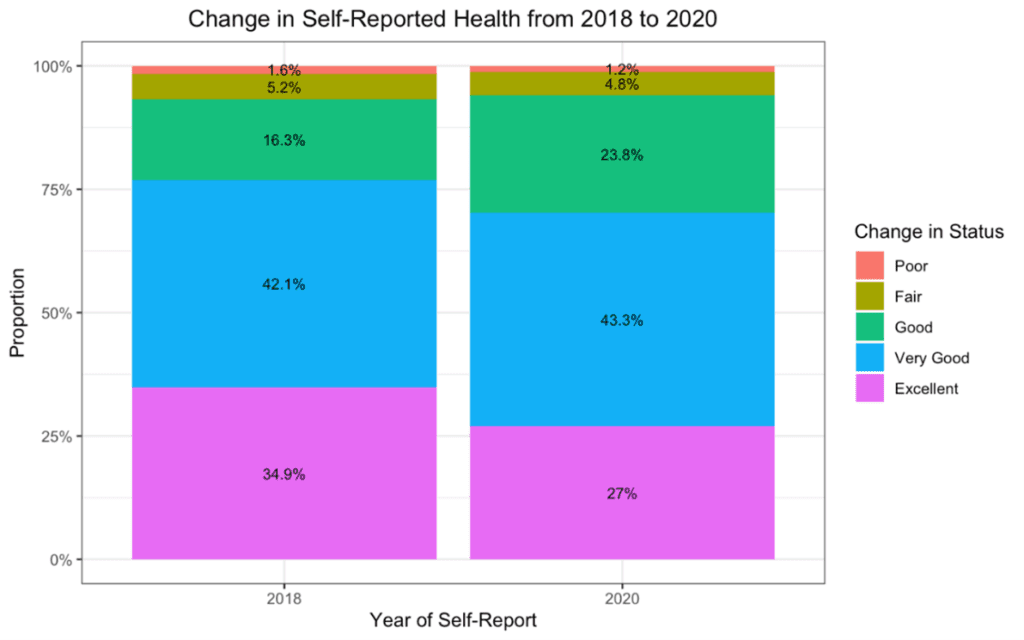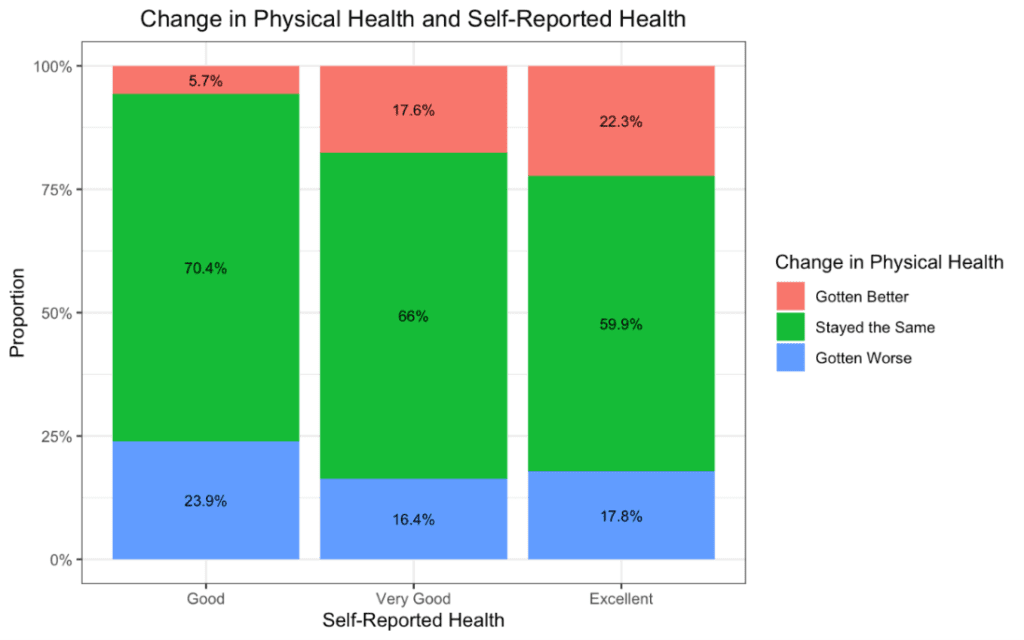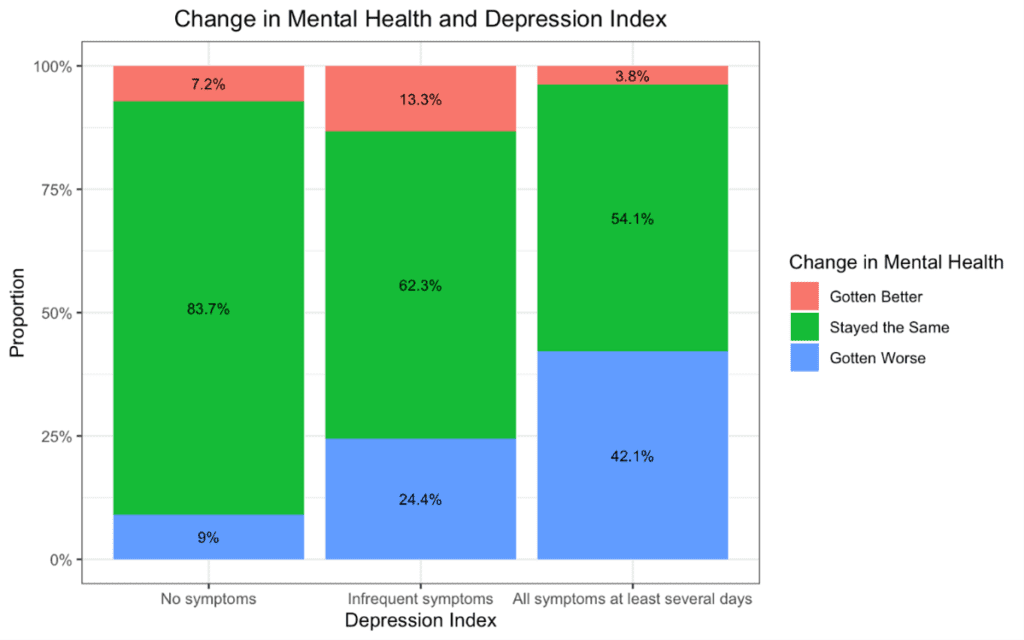In our sixth report drawn from the Living in Boston During COVID-19 survey, we have focused on the pandemic’s health impact among Bostonians. We documented declines in physical health and even more in mental health that residents attributed to the pandemic. At the same time, we found striking disparities in these adverse health effects between residents in relation to their overall health, their health behaviors, and their race and ethnicity, education and employment, and marital status. The patterning of these effects reveals how multiple aspects of residents’ backgrounds and current circumstances shaped their experience of the pandemic. In today’s data story, the first of three from this report, we focus on the extent of adverse health impact.
Almost one in five reported their physical health had worsened from March to the Fall, but one in seven said their physical health had improved. Respondents were more likely to feel their mental health had suffered: more than one-quarter said their mental health had gotten worse, while fewer than one in ten said it had improved since March.

Comparing change in our panel surveyed in Fall 2018 and then again in Summer 2020 indicates only a small decline in self-reported physical health: The percentage rating their health as “very good” or “excellent” declined by only seven percent.

By contrast, the decline in mental health indicators during this period was substantial. There was a 22-percentage point increase in reports of feeling down, depressed, or hopeless in at least several days during the two weeks preceding the survey. The increase from the Fall 2018 to the Fall 2020 in feeling left out was almost as large.

Poorer self-reported health was associated with more adverse impact of the pandemic on physical health. Similarly, more symptoms of problems with mental health were associated with more adverse impact of the pandemic on mental health.


Our data provide strong indications of widespread adverse effects of the pandemic on Bostonians’ health, with the decline in mental health appearing to have been more severe than with respect to physical health. These data and analyses from our ongoing Boston panel survey also suggest that it was residents who already were in relatively poorer health who were more likely to suffer further health problems as a result of the pandemic, compared to those who were in better physical and mental health.
The content of this post is drawn from the Living in Boston during COVID-19 survey conducted by the Center for Survey Research at UMass Boston and the Boston Area Research Initiative at Northeastern University, in collaboration with the Boston Public Health Commission. It was funded by the National Science Foundation’s Human-Environment and Geographical Sciences (HEGS) program through a grant for rapid-response research (RAPID; Award #2032384). The results presented here were part of a longer report on “Physical and Mental Health.”

